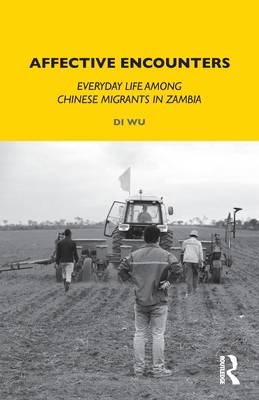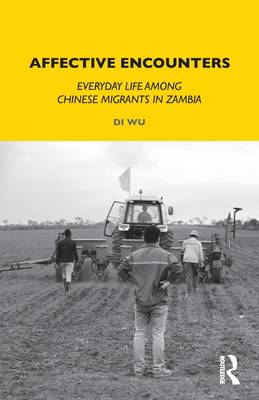
- Retrait gratuit dans votre magasin Club
- 7.000.000 titres dans notre catalogue
- Payer en toute sécurité
- Toujours un magasin près de chez vous
- Retrait gratuit dans votre magasin Club
- 7.000.0000 titres dans notre catalogue
- Payer en toute sécurité
- Toujours un magasin près de chez vous
Description
Against the background of China's rapidly growing, and sometimes highly controversial, activities in Africa, this book is among the first of its kind to systematically document Sino-African interactions at the everyday level.
Based on sixteen months of ethnographic fieldwork at two contrasting sites in Lusaka, Zambia--a Chinese state-sponsored educational farm and a private Chinese family farm--Di Wu focuses on daily interactions among Chinese migrants and their Zambian hosts. Daily communicative events, e.g. banquets, market negotiations, work-place disputes, and various social encounters across a range of settings are used to trace the essential role that emotion/affect plays in forming and reproducing social relations and group identities among Chinese migrants. Wu suggests that affective encounters in everyday situations--as well as failed attempts to generate affect--should not be overlooked in order to fully appreciate Sino-African interactions.
Deeply researched and with rich ethnographic detail, this book will be relevant to scholars of anthropology, international development, and others interested in Sino-African relations.
Spécifications
Parties prenantes
- Auteur(s) :
- Editeur:
Contenu
- Nombre de pages :
- 246
- Langue:
- Anglais
- Collection :
Caractéristiques
- EAN:
- 9780367562731
- Date de parution :
- 29-04-22
- Format:
- Livre broché
- Format numérique:
- Trade paperback (VS)
- Dimensions :
- 140 mm x 216 mm
- Poids :
- 290 g

Les avis
Nous publions uniquement les avis qui respectent les conditions requises. Consultez nos conditions pour les avis.






